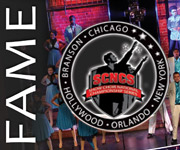
In any case, for your project’s immediate need or for a new ongoing creative partnership, you need to find an arranger that’s the right fit for your group.
Getting Started
In the realm of show choir competition, good arrangers are particularly valuable, given the importance of their work to the success of your competitive show. Some directors like to preserve their access and priority with their arrangers, consequently being reluctant to recommend them. Although word of mouth and reputation are traditional means of discovery, if you can’t get a name or referral, that pathway won’t get you anywhere.
Music faculty or staff at your institution is another possible resource, or source of recommendation. Composition students and faculty might be able to step up to demands of the project, but it should be noted that experience, particularly professional experience (and trips around the sun!) are likely to generate stronger instincts, musical knowledge, and the “show sense” that comes only with time.
Talent is essential. Although, as Igor Stravinsky said, “Music is work to be done.” Knowing not only what the work is, but also having taste and fluency in making musical choices, comes from talent. Additionally, passion for the subject is very powerful; look for indications that the arranger loves what he or she does.
Using the Internet to Find an Arranger
Google is a powerful tool, but it gets you only part of the way. You can come up with pages of results for search terms like “find a music arranger,” “show choir arrangers,” or other terms, but then it’s up to you to evaluate your results. It takes some research.
Given that anybody can put anything up on the internet, and that there is a really wide range of competence, experience, and price range represented, finding the mix that’s right for you takes evaluation of several criteria.
Things to Look for In An Arranger
Reviews and recommendations: Given the bespoke nature of arranging work, one of the most important things to look for is reviews and customer feedback. How do the arranger’s customers feel about her work? Is he accommodating, timely, conscientious, talented and skilled? Given that arranging is not a regulated or licensed profession, the perception of risk might be greater than, say, for a doctor or lawyer, who need to show evidence of professional credentials in order to work. Arrangers do have professional credentials, hopefully documented on their websites, but they are not regulated by any authority, and they are not rated by any criteria except your own judgment.
Résumé: What about work experience? Has your prospect worked in shows, played in pits, done Broadway? Worked as a performer at high professional levels? Been arranging for any length of time? What about stylistic variety? Is your arranger a diehard rock-n-roller, or is there also orchestral work in his or her background?
Although it may seem desirable to find a winning competitive show in an arranger’s résumé, that item alone will not necessarily speak to the breadth or stylistic flexibility required to write a diverse, exciting, stylistically broad show. Look for range of stylistic familiarity to avoid hooking up with a musician of limited scope, unless your show is of a specific genre. If you’re planning to perform to track, find an arranger experienced as a producer. Methods and costs vary widely, depending on whether there are real players hired in the making of the track. Be clear in your mind what the form of your finished product will be, in order to evaluate your discoveries against your specific needs.
Familiarity with Copyright Issues: Has your arranger ever obtained a license in the form of Permission to Arrange for any work? Does he or she understand the potential liability that can be incurred from a failure to properly license a work for a competitive show? Find an ally who understands how to keep your show protected from the ever-growing likelihood of copyright litigation or prosecution.
Example Work: Most arrangers will be able to provide examples of their work, or a reel of some kind. If they’re cautious or scrupulous about copyright—or client confidentiality—you might not be able to find any examples on their website. Sending an inquiry will often get you the example you’re looking for.
What Makes A Great Arrangement?
Instrumentation and Voicing: Assignment of instruments and voices is fundamental to arranging: “Who does what, and when?” Giving proper support to staging and dramatic sequence is thedriver of these choices. The arranger needs to coordinate closely with a choreographer (if there is one) or work to marked-up lyrics or a storyboard to graph out the unfolding of events.
Compositional Development: Proper introduction of melodic elements, giving new motifs room to breathe, and repeating motifs so they become familiar, together lay the groundwork for development, leading to the combination and stacking of motifs during the progression of the arrangement. Building upon introduced elements is a fundamental compositional technique, and good arranging depends on it.
Narrative Sense: Well-crafted compositional development has a narrative arc, building excitement, drama, joy, or any emotion you can think of. The fluent arranger controls the arrival of musical climax.
Happy hunting!











